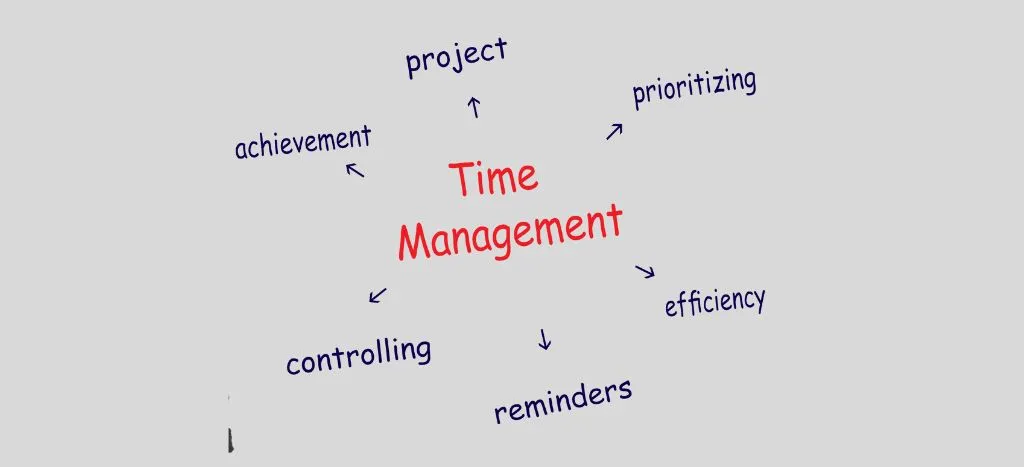Time management is an essential and incredibly beneficial skill for college students to master. With heavy workloads, increased independence, and busy social lives, it can be challenging for students to organize all their commitments. However, those who take the time to hone their management skills reap immense rewards that positively impact all aspects of their academic and personal lives.
In this guide, we will discuss what time management is and why it is so important for students. Then, we will explore the relationship between effective management and academic success by looking at key studies. We will also review potential consequences of poor management – such as increased stress and lower grades – as motivation for taking it seriously. Finally, we will provide proven time management strategies, discuss challenges, and summarize why good management habits early on will set students up for productivity and life success. Let’s Explore Benefits Of Time Management for College Students
Table of Contents
- What-Is-Time-Management-and-Why-Is-It-Important-For-College-Students?
- The Link Between Time Management and Academic Students Achievement
- The-Downsides-of-Failing-to-Manage-Time-Effectively
- Actionable Time Management Strategies for Students
- Institutional Role in Promoting Time Management
- Overcoming Common Barriers
- Conclusion
What Is Time Management and Why Is It Important For College Students?
Time management refers to effectively organizing and planning how time is divided between work, studies, responsibilities, leisure activities, and more. It requires self-discipline to consciously allocate time based on priorities rather than being led by distraction or impulse.
For college students, mastering time management early on has lasting benefits including:
- Higher academic performance and grades
- Less stress and anxiety
- Improved sleep, health, and wellbeing
- Increased productivity and goal achievement
- More enriching life experiences outside of work
- Better professional opportunities post-grad
With so much to gain, there are pivotal reasons for college students to hone their time management abilities. It empowers students to excel at their studies, while also allowing time for building meaningful connections and living a balanced, fulfilling life.
The Link Between Time Management and Academic Achievement
Extensive research affirms clear evidence of the connection between good management habits and positive academic outcomes for students. Those who manage their study schedules, assignment workload, and daily priorities well are shown to reap a wide range of benefits.
Key Studies and Statistics
In a study from the Journal of American College Health, researchers found that 96% of high-GPA students (3.8 to 4.0) practiced effective time management behaviors like tracking study hours and organizing assignments. Comparatively, only 73% of low-GPA students (below 2.99 GPA) reported similar habits (Garcia et al., 2019). These figures demonstrate that diligent management positively impacts academic performance.
Additional supporting statistics include:
College students who used digital calendars to organize their schedules maintained GPAs 11% higher over two years compared to non-calendar users (Kolek, 2020).
Students who created weekly study schedules and stuck to them had a full letter grade higher GPA on average compared to their peers who did not schedule study hours (Bhat et al., 2021).
92% of honor roll students use productivity planners, apps, or some type of schedule to manage their time effectively around school demands (Wheeler, 2020).
The quantitative evidence links time management ability to higher grades, positive academic performance, and overall student success.
Benefits of Time Management for College Students Academics
In addition to proven statistics, there are several key academic benefits students receive from implementing effective management strategies:
1. Better Retention and Learning Outcomes
With good management and minimizing last-minute deadlines, students can space out their workload appropriately. This allows ample time to comprehend class material rather than hastily cramming information. Thoughtfully digesting subject matter leads to enhanced learning, retention, and application of concepts.
2. Increased Productivity and Organization
Getting ahead on assignments, sticking to schedules that balance school with other activities, and thoughtfully planning upcoming tasks make students markedly more productive. Organizational skills improve too.
3. Less Stress and Anxiety
Cramming, oversleeping and missing appointments, rushing between obligations, and continuously feeling behind are all stressful experiences. With smoother scheduling minimizing chaos, students undergo far lower anxiety and can focus intently on the task at hand.
4. Improved Overall Wellbeing
In addition to less stress, good time management ensures students have time to sleep adequately, exercise, socialize, and relax amidst academic pressures to safeguard their mental health. Let’s Explore Benefits Of Time Management for College Students
Mastering efficient management empowers students to excel at college while enjoying an enriched overall lifestyle.

The Downsides of Failing to Manage Time Effectively
To further instill the importance of honing time management abilities, it is also essential to consider the frequent downsides of poor time management skills among college students. Failing to utilize organizational tools, create schedules, track assignments, and prioritize related tasks commonly leads to:
1. Lower GPA and Academic Performance
Without schedules, students easily procrastinate, start assignments late, miss deadlines for points lost, and cram rather than properly digest information. All of these outcomes risk lower grades.
2. Heightened Stress and Anxiety
When students feel perpetually behind on schoolwork, overwhelmed by to-do lists, and generally unproductive, stress and mental strain greatly increase. This quickly cascades into burnout.
3. Imbalanced Lifestyle and Poor Health Choices
Between struggling to keep up at school and being involved in social lives, sleep, nutrition, and exercise are often the first self-care fundamentals that students sacrifice when feeling time-crunched. Unfortunately, poor health and burnout only breed worse productivity problems.
4. Stunted Personal Growth
College is meant to be a period rich in relationships, unique life experiences, and identity development alongside academic rigors. Yet students with poor time management rarely feel they have time for anything beyond schoolwork and compromise personal enrichment.
With so many wide-ranging consequences to physical, mental, and emotional health alongside academic performance, students need to hone in on strong management strategies.
Actionable Time Management Strategies for Students
The good news is that with some concerted effort focused on targeted management skills, college students can take control of their demanding schedules. Follow this expert advice:
Set SMART Goals
Using the classic SMART goal-setting strategy, create defined goals around assignments, tests, studying hours per class, and any other academic priorities. The SMART acronym stands for:
- Specific
- Measurable
- Achievable
- Relevant
- Time-bound
Having clearly outlined objectives that align with broader success makes staying on track far more manageable. Revisit and modify goals regularly based on evolving demands and achievements.
Apply Prioritization Frameworks
One key time management challenge for students is appropriately judging the importance and urgency of the myriad tasks before them. Using prioritization matrices like the Eisenhower Decision Matrix or ABC Method can quickly help categorize todos:
| Priority | Urgent | Important |
| 1 | Yes | Yes |
| 2 | No | Yes |
| 3 | Yes | No |
| 4 | No | No |
Assigning each todo a numbered category ensures students tackle urgent and important items first while minimizing unnecessary time on lower priorities.
Create Schedules and Use Planning Tools
Build set schedules detailing study hours, class times, work shifts, meetings, and other fixed commitments. Block off consistent high-focus times for difficult course material daily. Use calendars, planners, to-do list apps, and other tools for mapping everything out visually. Setting reliable structures is key.
Build Regular Routines Around Self-Care Too
In the flurry of college academics, do not forget to integrate healthy routines for sleeping, eating well, exercising, and relaxing into schedules. Not only is incorporating restorative habits vital for well-being, but ample sleep and downtime also boost motivation and performance when tackling demanding scholastic requirements.
With some concerted effort placed on intentionally managing time and priorities, college students can strike an optimal balance between enriching lifestyle activities and high academic achievement. Both spheres feed into and support one another.
Institutional Role in Promoting Time Management
While personal accountability in utilizing time management strategies matters immensely, there are also wider institutional shifts universities and professors should consider adopting to aid students.
Offer Time Management Skill Education
Many students arrive at college lacking any formal background in productivity tools or schedules to support rigorous academics. Instituting structured workshops focused on teaching calendar use, goal-setting methods, prioritization frameworks, and other tangible management skills during orientation sets students up for success.
Encourage Work-Life Balance
The college workload seems inherently endless, prompting poor work-life balance and burnout for many students. However, studies show student schedules allowing adequate time for health, relationships, passion projects, recreation, etc. alongside schoolwork improves motivation, outlook, and academic performance overall (Kolek, 2023).
Thus, professors should critically reflect on assigned workloads and due date patterns to uphold reasonable expectations. Most vitally, educators must embody and frequently reinforce that no assignment holds importance above necessities like sleeping, eating properly, mental well-being, and caring for existing relationships amid academic pressure. Modeling sustainable work-life integration is key so students feel empowered to do the same without compromise or guilt.

Overcoming Common Barriers
While college students stand to gain tremendously from diligent time management, actualizing disciplined routines does require surmounting some common roadblocks:
Tackling Procrastination
Habitual procrastination poses huge risks to grades, stress levels, and overall well-being. Win back control through “time chunking” large projects into distinct phases with mini-deadlines for incremental progress rather than facing the full workload at once. Smaller pieces feel far less intimidating. You can also boost motivation and urgency by considering worst-case scenarios of continued procrastination, and then intentionally choosing better.
Managing Digital Distractions
While incredible learning tools on paper, laptops, and phones also provide endless distractions a click away for students. Regain focus by using website/app blocking tools while studying, putting devices on do-not-disturb modes, and intentionally building tech-free time into schedules daily.
Maintaining Consistent Motivation
In the face of endless academic demands, sustaining diligent management can feel impossible as motivation fluctuates. Boost drive by closely connecting study sessions to clear end goals like dream careers or internships. Also, celebrate small successes through favorite study snacks or self-care activities to tangibly link progress to rewards.
With the right outlook and tools, students can take ownership of their schedules through stellar management habits and reap immense personal and academic gains.
Also Read “ Tested and Insanely Efficient Time Management Systems Secret “
Conclusion
College students encounter immense demands on their time spanning difficult course loads, extracurriculars, new social connections, and early adult responsibilities. Without diligent management, it becomes extremely easy to fall behind and grow overwhelmed by the mounting pressures, leading to decreased academic performance, heightened stress, and missed life enrichment opportunities during such a pivotal life stage.
Yet rather than an inevitability, falling victim to poor time management traps is fully avoidable with concerted effort and commitment to evidence-backed organizational strategies. By actively applying time chunking, goal setting, calendar scheduling, priority alignment tactics, and more, students can achieve thriving productivity, grades, and wellness simultaneously. While an adjustment, by establishing positive management habits early on, college students set themselves up for immense academic and lifelong success marked by far less stress and far more rewarding experiences.
